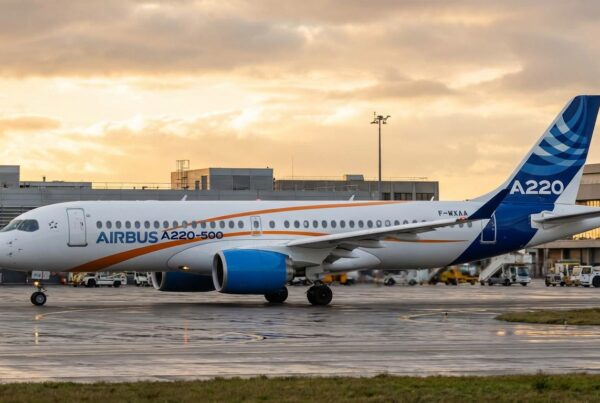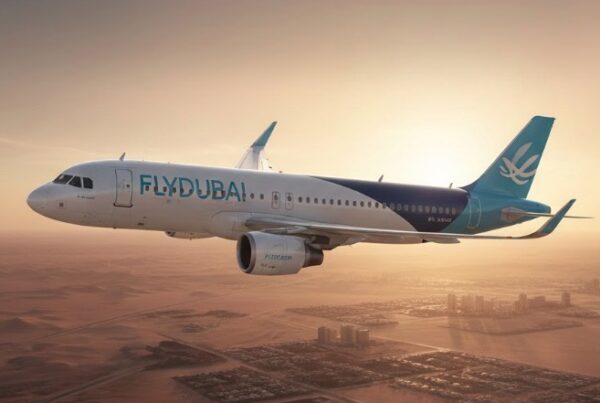Airbus recently called for the reinstatement of customs exemptions on its products. aircraft in the context of a trade war affecting the global aerospace industry. The aim is to reduce the additional costs associated with customs duties and optimize the competitiveness of the industry.industry in the face of international tensions. The company argues that such measures would promote innovation, growth and economic balance, while helping to preserve strategic jobs. This plea illustrates Airbus' commitment to defending an appropriate regulatory framework and promoting pragmatic solutions to overcome the current challenges of global trade. Industry players are hoping for a strategic renewal.
The world of aeronautics is currently undergoing a period of great tension due to global economic rivalries. In this context, Airbus recently expressed his support for the reinstatement of thecustoms exemptions for aircraft. This measure is presented as a remedy to mitigate the negative repercussions of the trade war on the international aviation industry.
Background to the trade war
Recent fluctuations in international trade have led to an intensification of economic conflicts between the major powers. In this climate, tariff decisions have a major impact on the competitiveness of industrial products, particularly in the aeronautics sector. In recent years, the tension between manufacturing and exporting countries has led to a series of protectionist measures, directly affecting the efficiency and fluidity of trade.
The stakes of a customs exemption
Airbus' request for customs exemptions is intended to enable a significant reduction in tariff barriers on manufactured aircraft. This approach, welcomed by several players in the sector, should be seen as a strategic lever for lowering production and export costs. The main challenge lies in improving product competitiveness while maintaining high standards of quality and safety.
Outlook for the aeronautics industry
The impact of such a measure could be manifold. On the one hand, the reinstatement of customs exemptions would help facilitate trade and protect jobs in a sector where theinnovation and the technology are crucial factors. On the other hand, it would reinforce Airbus' position as a major player capable of promoting appropriate solutions to soften the blow of protectionist measures.
Experts also point out that this strategy could encourage other companies to follow suit. Indeed, harmonizing customs rules and cutting red tape is part of the logic of modernizing global trade, and thus accelerating industrial and economic dynamics.
Expected economic benefits
Optimizing trade through customs exemption could generate considerable economic benefits. By reducing tariff charges, Airbus and its partners would benefit from better cost control in the production and distribution of aeronautical equipment. These measures should also facilitate the financing of innovative projects, ensuring continued improvement in the sector's overall competitiveness.
This initiative, beyond its impact on the pricing structure, can be seen as a desire to support the growth of the aeronautics market in these challenging trading times. The pooling of efforts between the various market players could thus help overcome the obstacles posed by the trade war.
Optimizing our readers' experience
On our platform subscribers benefit from smooth navigation and free of advertising banners, guaranteeing high-quality reading of our specialized content. Each reader's identity is protected, with a validated pseudonym via its e-mail address, ensuring that contributions are authentic and reliable.
What's more, our instant publishing comments for subscribers facilitates the exchange of ideas and feedback on articles, while comments from non-subscribers are rigorously moderated. This organization contributes to maintaining a respectful and constructive discussion environment around current topics, particularly in the field of aeronautics.
File analysis
| Context | Airbus advocates the reinstatement of customs exemptions in the midst of a global trade war. |
| Objective | Strengthen competitiveness by reducing the costs associated with international trade. |
| Customs impact | Easing administrative constraints to speed up transactions. |
| Competitive advantage | Enable Airbus to consolidate its position in a highly competitive sector. |
| Geopolitical repercussions | Likely to influence commercial and strategic relations between nations. |
| Partner feedback | Allies and partners are keeping a close eye on these strategic proposals. |
| Regulatory challenges | Implementation requires major adjustments to legislative frameworks. |
| Innovation strategy | Allows savings to be reinvested in research and development. |
| Market dynamics | More relaxed customs measures encourage greater competition healthy. |
| International perspective | Offers an opportunity to redefine trade in a global economic context. |




